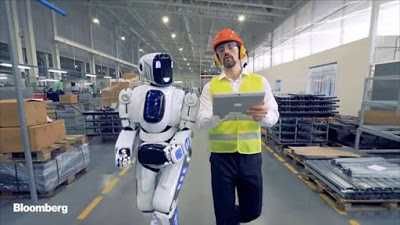
Machines will take over 85 million jobs by 2025
On May 15, the “Polish Order” was announced – a program that is a set of economic proposals and priorities for Poland in the coming years. One of the main pillars of the program is “Cyber Poland 2025”, which means, among other things, rapid digitization and automation of companies in Poland. The program came several months after representatives of the World Economic Forum announced that in 26 countries surveyed (including Poland), machines will take over 85 million jobs by 2025. At the same time, 97 million new jobs will be created. Abile experts predict that critical thinking and learning skills will be among the most desirable traits. Among the most sought-after professions, on the other hand, we will find data analysts and IT specialists. artificial intelligence or process automation.
“Cyber Poland 2025” concerns, among other things, the digital future of Polish entrepreneurs. This is a plan with proposed changes that will soon make Poland a high-tech country. There are 14 points in the report that describe the planned changes to increase the level of digitization in Poland.
Meanwhile, as representatives of the World Economic Forum indicate, over 80% of the surveyed companies declare that within the next 5 years they will implement one of the new technologies automating production or service activities. The OECD, in turn, forecasts that automation and robotization will be, along with investment in “green” jobs, key drivers of changes in labor market demand. OECD experts estimate that in Poland even 20-30% of. Workplaces can be automated to some extent. However, there are many examples showing that automation does not lead to job elimination. On the contrary, automation and robotization contribute to the creation of areas where bots complement human labor by performing routine tasks. Experts of the World Economic Forum even estimate that 12 million new jobs will be created on the market.
– Not only has the pandemic not slowed down digitization processes, but in some companies it has even created an urgent need for it. Our research shows that Poles are open to technological innovations that help us do our jobs better. Observing our everyday life, we see that the development of technology generates new needs. People see new opportunities and are quick to take advantage of them. New jobs or even completely new professions are created. The increasing level of digitization in Poland will increase demand for e-leaders, i.e. people who combine digital and business competences. Data analysts and data specialists. Artificial intelligence or process automation will become one of the most sought-after professions on the labor market – says Mariusz Gołębiewski, Vice President of Abile Consulting.
Will we be competitive in the new labor market?
In late 2020 and early 2021, Abile asked working Poles whether their Jobs would be at risk if the employer decided to automate and robotize the company. 65% of those surveyed said they were not concerned about losing their job as a result of these processes, while only 25% of those surveyed indicated that their job could be done in whole or in part by a robot. 9% of respondents do not believe that robots are able to replace people (Survey conducted on the Ariadna panel on a nationwide sample of 1101 people (CAWI method).).
– As our research indicates, the vast majority of working Poles are not afraid of losing their jobs as a result of digitization in their companies. They perceive bots not as a threat, but as a complement to human skills. Also managers and entrepreneurs increasingly expect from their employees more creative and individual approach to the task, rather than boring repetition of the same routine activities. I predict that critical thinking and the ability to learn quickly will be among the most desirable characteristics on the labour market – he adds Mariusz Gołębiewski.
Abile experts point out that robotization of business processes will become even more important in the context of implementation of changes proposed in the program “Cyber Poland 2025”. However, it is important to remember that a software robot is primarily an aid for an employee. A bot on its own will not come up with anything innovative – there will be a need to hire people to operate and supervise these bots. They will keep an eye on standards or changes in business conditions (e.g. changes in law or those related to financial markets). Ultimately, the task of employees will be to make friends with robots and work together.


